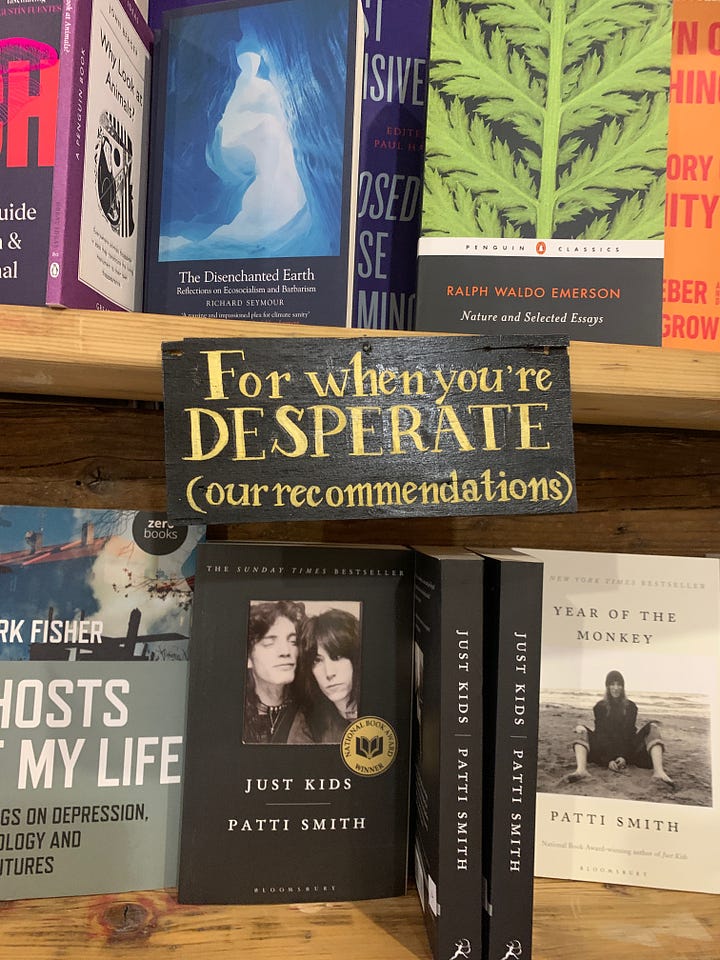


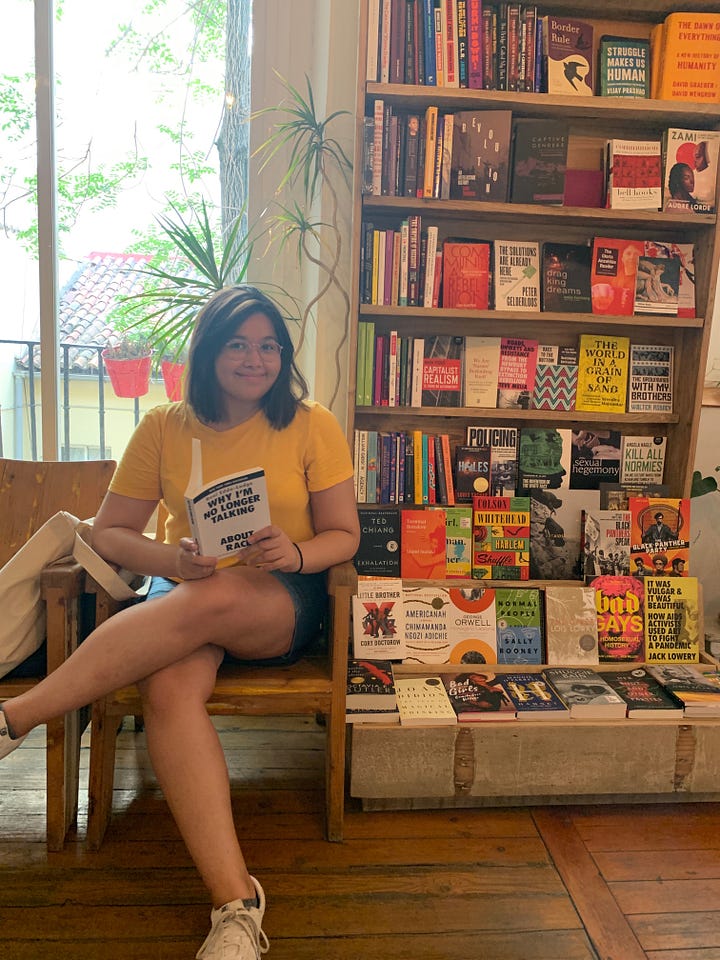
Bookstores are also curated. The moment you walk in Fully Booked BGC, you're like wow, a massive four-story bookstore! They must have something in store for me! But you always walk out a little disappointed, you think back on the tables lined with Tiktok Books. Everyone is reading Sally Rooney. Everyone is reading Sweet Bean Paste.
My relationship with FullyBooked has always be one of wonder. “Wow, this one has a Starbucks!” My Mom would wait in the cafe (or in Pinkberry) as I zoomed into the Young Adults section. As a kid I personally always made a run for the fourth floor- the audio/music section. Where they had headsets and you could listen to the latest Taylor Swift (at the time), or Jonas Brothers, or even Jazz. I didn't really care about germs at 12 years old but it was cool to explore.
I've sat on thier chairs and read for hours, and hours and hours the books I couldn't afford to buy in the Summer of 2013, back when all you cared about were best-sellers. But in my more recent trip in 2021, I walked away and bought nothing for the millionth time in my life. Anyway, my point is, you never really walk out finding a new book or discovering anything. You kind of just walk in knowing you're going to buy a best-seller.
I feel this more intensely (more na nga intensely pa) with Casa del Libro or FNAC branches in Alicante. Every single time I stand by the English Section, I stare eye-to-eye with rupi kapur, or a very disjointed collection of Harry Potter, or my personal favourite, books I've never heard of before with ridiculous titles like “Fuckboy”.
Filipiniana Bookstore La Solidaridad is fun to browse, Desperate Literature and Pasajes in Madrid too. And the difference lies in their staff. Booksellers essentially curate the stores. They are the backbone of the business. They recommend you books you might like and you have to admit it, you trust the recommendation. Even if you don't ask for a recommendation, you're interested enough on the themes, the authors, and the stock of the store. They stock up their stores with books that are far from the best-sellers lists. You actually feel a sense of joy in reading a little blurb, in browsing their shelves, in the many titles of poetry you've never considered to read until that one quote you saw on the shelf. These are details that big bookstores don't really offer (so they resort to selling a bunch of different versions of the books like KPOP albums).
In the Art of Libromancy, I learned that Audio.fm, Audible, Iberlibros/Abebooks are owned by Amazon. And they essentially price their books so low they actually don't make profit from them. They also purchase a bunch of companies that offer bookish services. Abebooks is a second-hand online bookstore. If you think for a second that you've found an amazon alternative, well too late they already bought it. In all honesty I didn't get past four chapters of the Art of Libromancy because it made me sleepy every night for three weeks, and also because I didn't really like the way it was written (and also the emphasis on American bookselling, which frankly, I give no shits about). But it was through this book that I realized that yes! Bookstores are curated spaces!
On bookish things:
You've seen Karl Castro's designs before, it's part of your core memory. He designed Para Kay B by Ricky Lee and also the poster for That Thing Called Tadhana.


As I doom scrolled and stalked his website I found that he had also designed "The Manila Synod of 1582: The Draft of its Handbook for its Confessors". Which I distinctly remember as the most succesful UST History Society Lecture. Students from across different colleges came to listen to the translator, Paul A. Dumol, and remember pretty much nothing but regret (because I never got a signed copy). The event was held when the book was published in 2016 (I think).
The initial violent reactions from Spanish officials could have prevented the completion of the synod's handbook, overtaken by Salazar's 1591 depature for Spain to plead personally before the king his case for the natives and against Spanish abuses.
This book was intended to be a handbook in solving the moral cases and abuses committed by the Spanish against Filipinos. Very very interesting content (there are three sets of footnotes), (and also makes you think twice whenever I say that it was the church that was morally corrupting the Philippines!). With great content also comes with great design. It looks like a draft!
Here is a video about it if you're too lazy to read this book review, and here is Karl Castro's website.
I've always wanted to buy a Fitzcarraldo book. Literally any book. Annie Ernaux, Kate Briggs, Olga Tokarczuk, Gina Apostol, whatever. They're pretty.
… And another author just won the Nobel Prize in Literature. This is an article about Fitzcarraldo's success in publishing hit-authors (read: they follow their gut). BUT more interestingly and more importantly, in another rabbit hole, I discovered that Jon Fosse, the Nobel 2023 winner, is subsidised by the Norway government. Which I feel is very important for… nations to do. Produce literature. Provide the basic needs of artists.
Recommendations? Anyone?
Send me the last five books you've read and I'll give you a recommendation! You'll find in the next newsletter one recommendation for one of you.1
Please send me an email to biancaoutsold@substack.com2 with your five recent reads, name, and current hometown!
I'm hoping my Blackwells Affiliate link gets approved by then!
Subscribers only so I don't get spammed



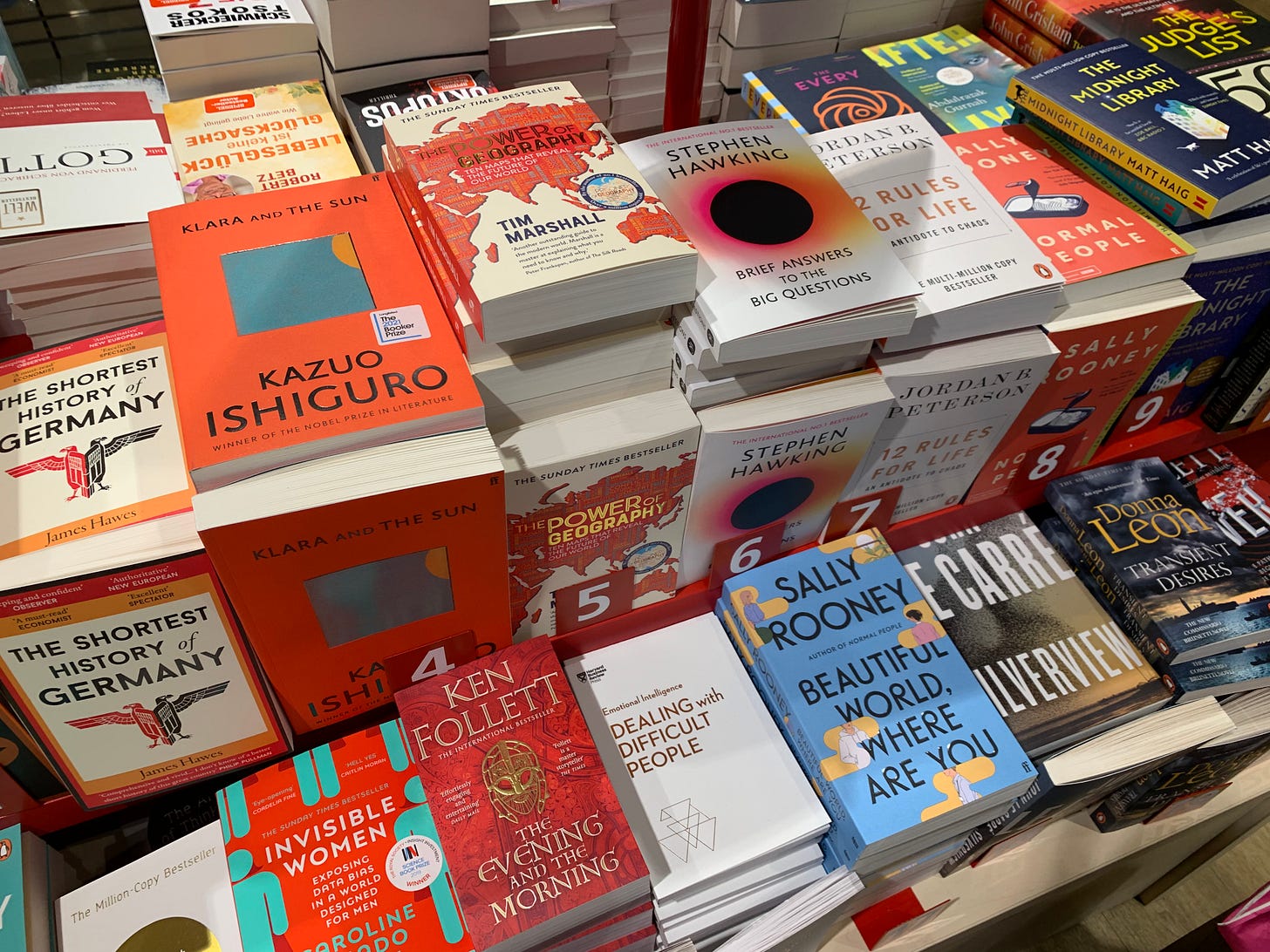
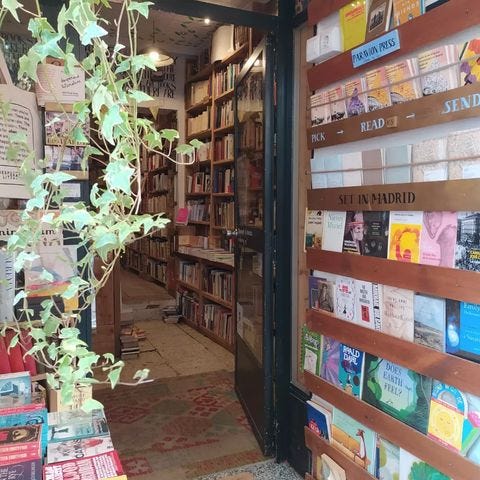

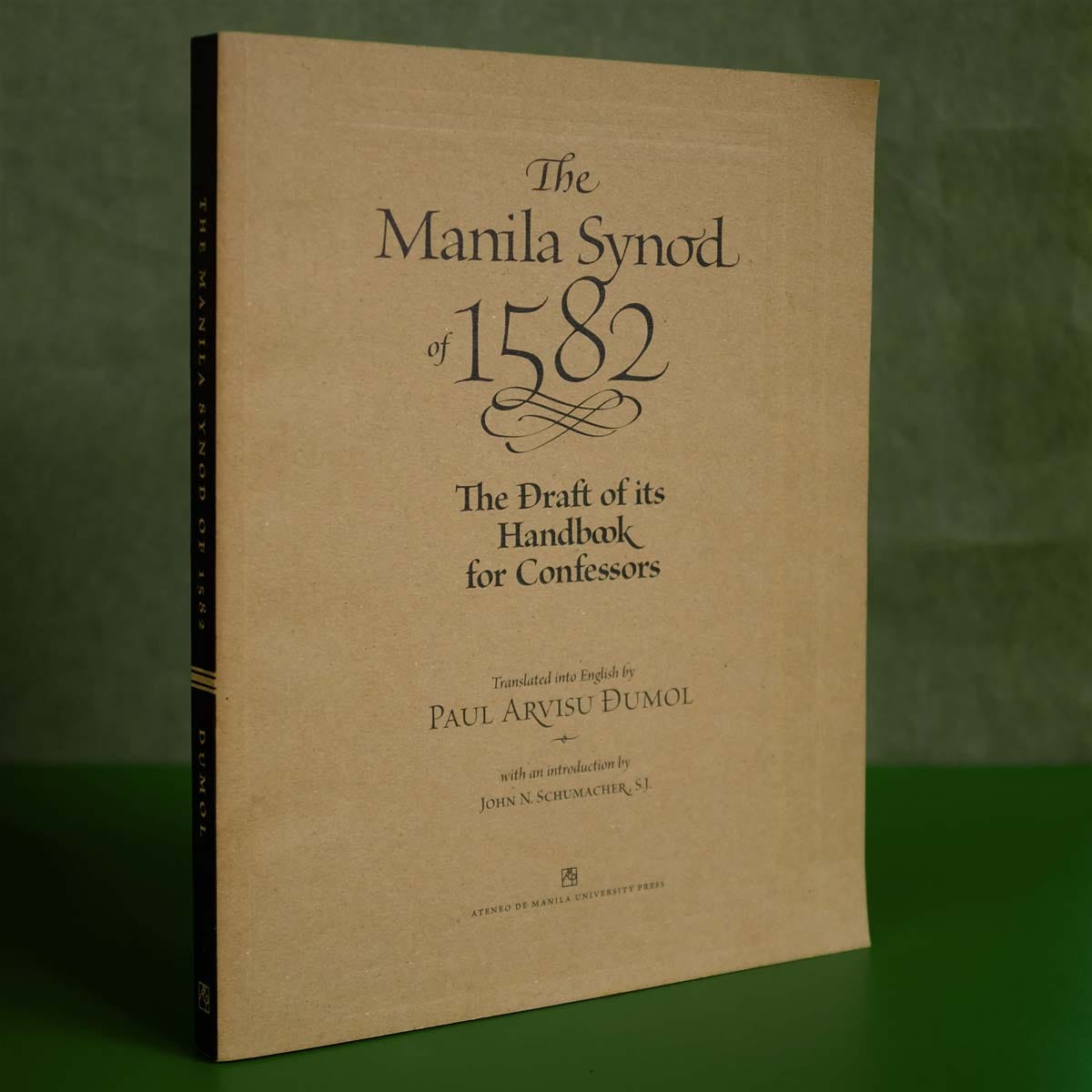


It's weird to see Karl Castro's name hahahaha. He's my co-faculty and I remember getting drunk with him noong Christmas party namin. Cool guy.